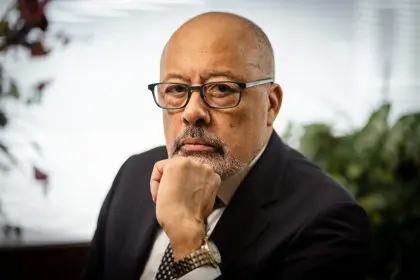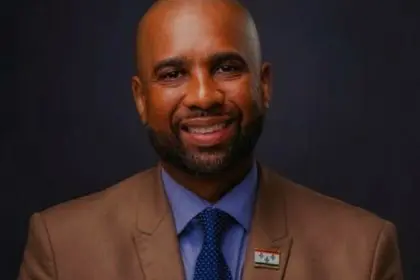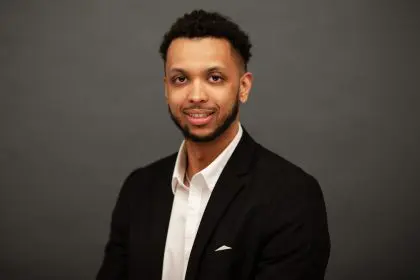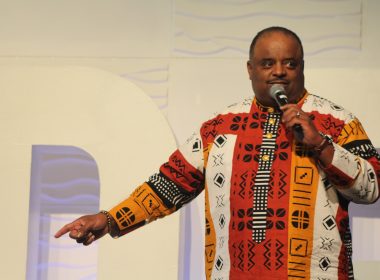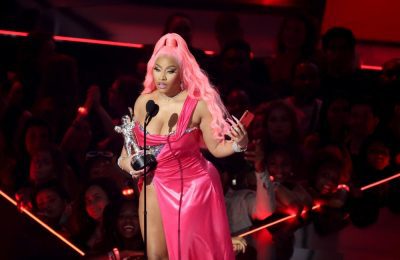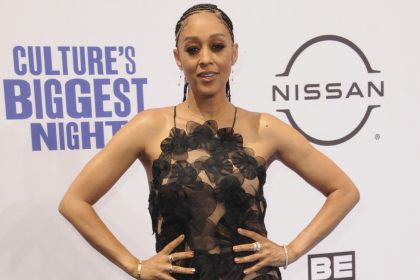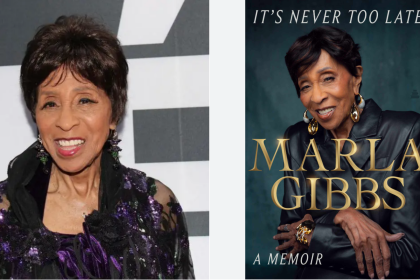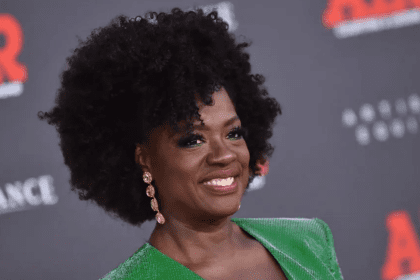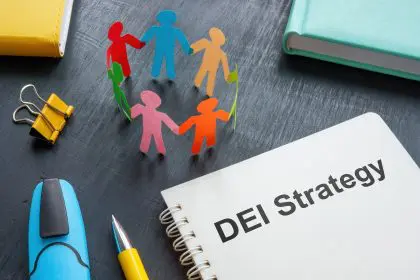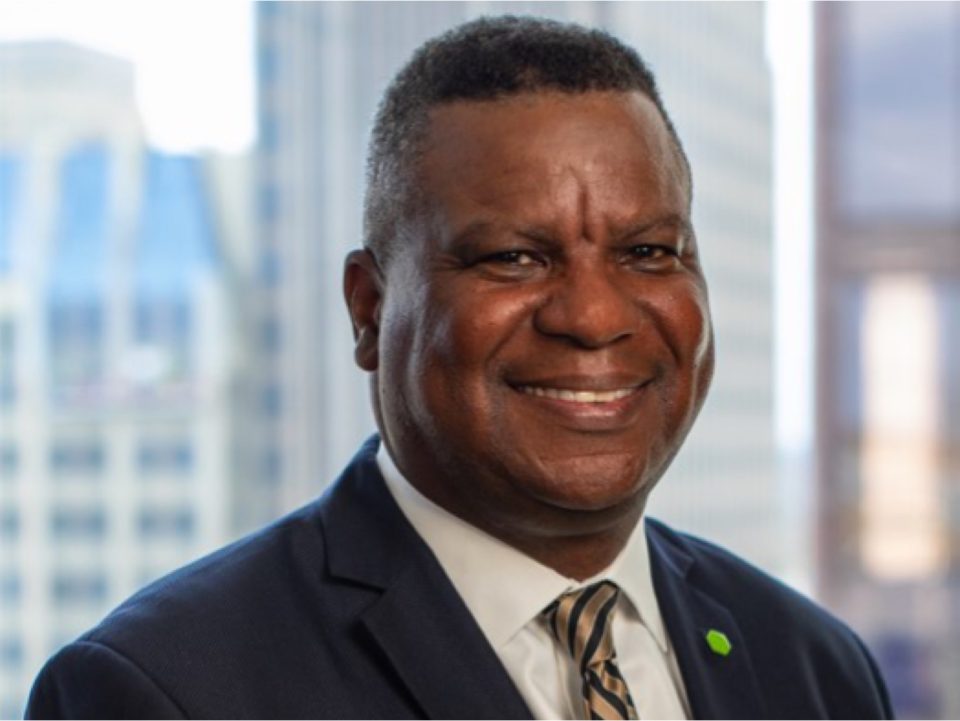
Donald Dennis leads diversity, equity, inclusion and culture at Huntington Bancshares Incorporated. He believes that when people feel respected and appreciated, they are more creative, innovative and successful. He develops strategies and programs to ensure Huntington is a leading employer in this regard. Dennis is responsible for fostering a culture of inclusion, advocating for equity, and embedding a sense of belonging for all colleagues across the company. His contributions help to deepen Huntington’s commitment to diversity, equity and inclusion in the communities it serves.
What would you share with young executives thinking about going into corporate America, and what they can anticipate that you may not have expected when there wasn’t a chief diversity officer to welcome you?
Value those aspects of your diversity that you have gained through lived experiences and have a positive perception of what you can contribute to the company you’re with or your affiliated business. Your differences are strengths, and valuing what makes you different, and having the courage to bring that into a work environment, is something that I encourage young people to do, particularly as they’re thinking about their careers.
What would you like to see the industry continue to do with you being present?
I think we have a responsibility and accountability to be fully inclusive. Our motto here at Huntington is “Welcome,” which means welcome to all. We want to ensure that first and foremost. We’re looking out for people who have access to banking services. I am accountable, as part of this industry and part of the leadership team of Huntington specifically, to use my voice, skills and platform to ensure that we’re doing that.
Why should young people consider finance or business as a career option?
A lot of those young people, specifically in HBCUs, are people like me. They care about their communities, and they want to see their communities strengthened. They want to see the businesses and their communities thrive and the people in their communities do well. That is the noble aspect of entering banking as a career. At Huntington, we say the role of a bank is to look out for people to make their lives better, to strengthen the communities they come from and to help the businesses in those communities thrive. When students look at where they come from, they think about the opportunity to do those things to improve their communities and help the businesses in their communities be successful. That’s a compelling value proposition for students thinking about what they want to do as a career.
What does it mean for chief diversity officers to be their authentic selves?
You have to be true to who you are as an individual. I view myself as a citizen of the community, I hold myself accountable for using my voice, skills and platform to strengthen the communities we serve, and you have to be actively engaged. It’s about moving words to action. You have to first listen, and you have to then act in partnership with others to drive positive change.
Can you share the difference between diversity and equity?
The way that I think about it is that diversity is a fact. We are who we are as individuals and people and are essentially born with our diversity. Equity comes as a part of inclusion and ensuring everyone fully participates in all aspects of our economy, be it in terms of the workforce, education, access to capital or affordable housing. All of those things make a community thrive. When we think about equity, it begins with inclusion and making sure everyone has an opportunity to participate fully.
How important is it for our children to understand the value of saving and building wealth?
I think it’s critical. Historically, Black and brown people haven’t had an opportunity to accumulate wealth through investing in assets and owning up assets. As we move forward, we must help educate people on the value of not only holding wealth and accumulating wealth but what are the processes and policies that need to be cultivated within our communities and passed down. We can do a better job in our educational systems of helping people understand how to use money in their life and how to use it to grow and accumulate wealth.
What are some programs that you’re proud of that you get to engage with at Huntington?
One that we recently introduced is a program called Magnuscards in partnership with a company called Magnusmode. As we think about doing the right things for our customers, colleagues, shareholders, and communities, we’re proud to collaborate with Magnusmode and their leader Nadia Hamilton. Our CEO connected with Nadia and was intrigued by this concept that she had of using digital card decks to help autistic and neurodiverse people better navigate everyday life experiences. After having a conversation with Nadia, we decided to partner with her and use the free app. We developed nine digital card decks to guide autistic and neurodiverse people through various everyday banking activities like how to use an ATM to deposit checks using a mobile app and open a checking account using a debit card to make retail purchases. What we are finding is that there are many people and their caregivers that need additional support. We want to make sure that everyone has the opportunity to be effective and go through everyday transactions, including using essential banking tools and resources.
What would you say to young entrepreneurs who are thinking about being in business?
People that start businesses are people that have great ideas and great passion. They’re not necessarily experienced in all of the operational aspects of running a sustainable business. That’s where I think a bank can be really helpful, not just in terms of access to capital to begin and grow a business, but also to provide support for all of those other skills that are needed to ensure that a business operates and grows successfully.
What is it like to be a mentor to a diverse group of young people, and what should they know about asking and getting insight from a mentor?
I have personally benefited from mentors in my career, and I don’t know that I would be in the position that I am without them. It’s a critical aspect of career development and the professional journey, that one goes on. As you think about mentorship and sponsorship, seek out the people that can see your potential and can help to identify your strengths and skills and help motivate you to maximize them. What I try to do for people that I mentor is motivate and inspire them to achieve their full potential and get the results that they’re looking for.
What does sponsorship mean in corporate America?
It is someone willing to speak positively on your behalf when they’re not in the room, someone that will advocate for you, and someone that will illuminate the things that you do and the value that you bring when you’re not present.
What are some of the things that you do so people should know this is something that they should be doing as they’re staying current on business?
It begins with communication. Strong, written and oral communication skills, are critically important. The ability to build relationships in today’s world is vital. You have to be a good listener and act with courage and I think that people should work on how to become an empathetic listeners. How do I embrace vulnerability? How do I engender trust with others in the relationships that I have? You will learn the technical skills in whatever career you choose, but it’s those interpersonal behavioral communication and relationship-building skills that are most valuable in the world today.
What’s it like having access to a CEO of a major financial institution like Huntington, when you have to have that difficult conversation?
Having the access and opportunity to work with our CEO every day is amazing. He has and continues to be committed to the culture of our organization and he has a vision for the type of company that we want to be in terms of being distinctive, how we think about workforce diversity and supplier diversity, and how we look out for our colleagues, customers, and shareholders. We have a lot of conversations about how we can continue to be better, and that kind of support is invaluable when you’re trying to make transformational change, not only at Huntington, but in the communities that we serve, so I couldn’t be more appreciative of the support.
How important is it for people to understand as a Black executive to give yourself grace and take a break?
I love what I do, and I’m excited about the opportunity that I get to start my day helping people, but it can be exhausting. The last three years in particular have been very challenging in terms of racial and social injustice, and a global pandemic. People are going through things, so a lot of times, the chief diversity officer has those caring conversations and you can get support from them. It’s a labor of love, but you do have to take moments to apply self-care and look out for one’s well-being as well.


